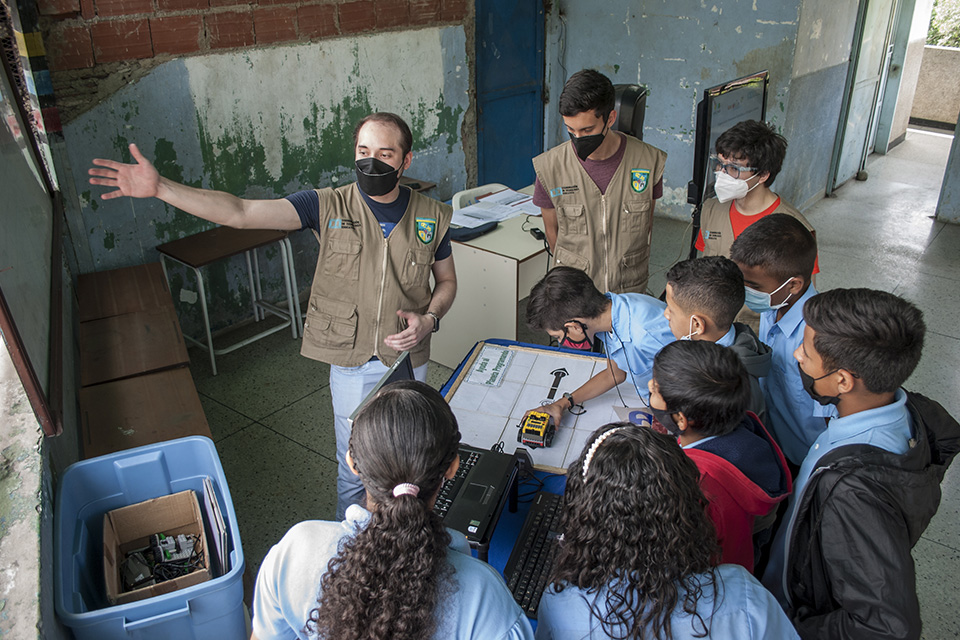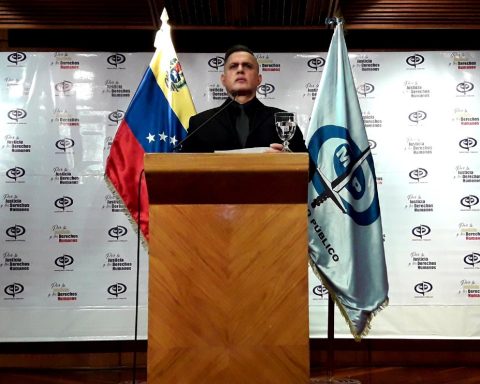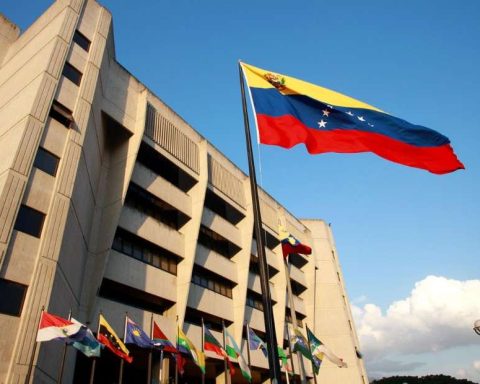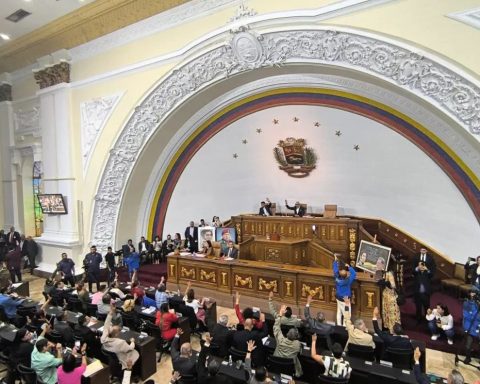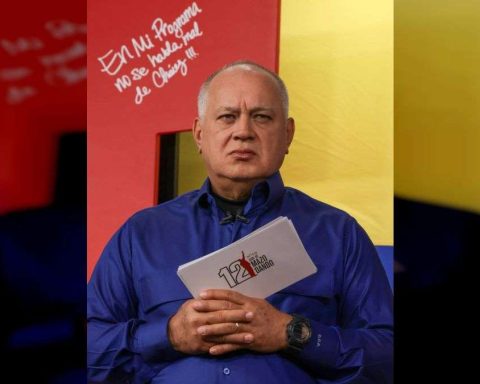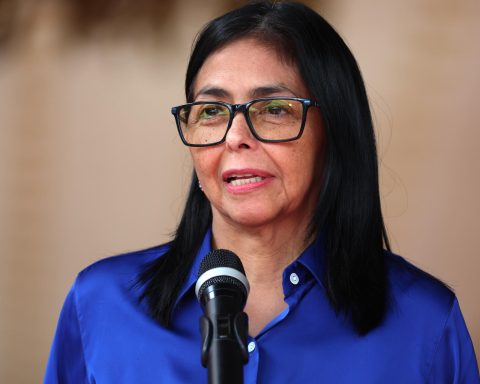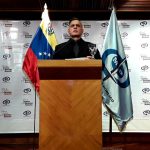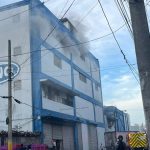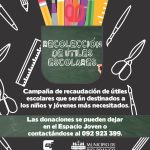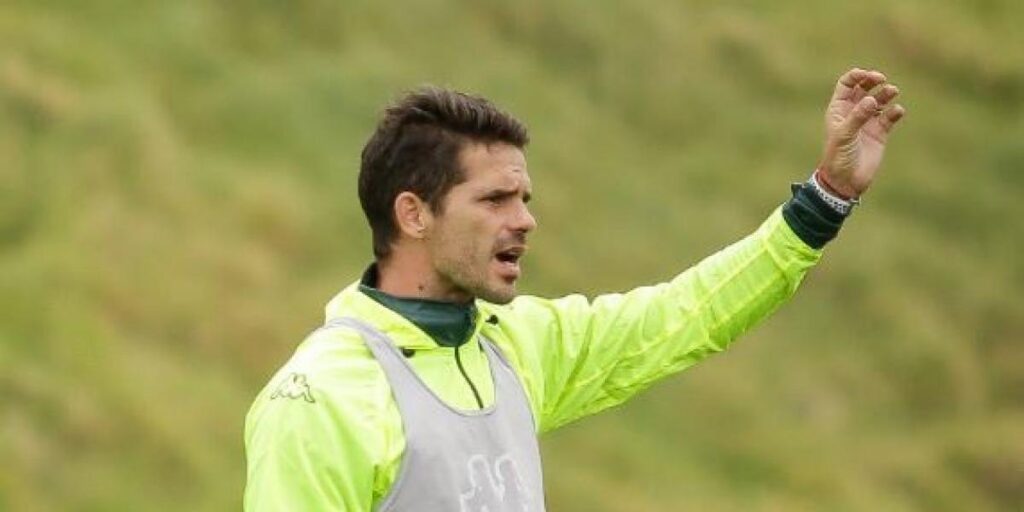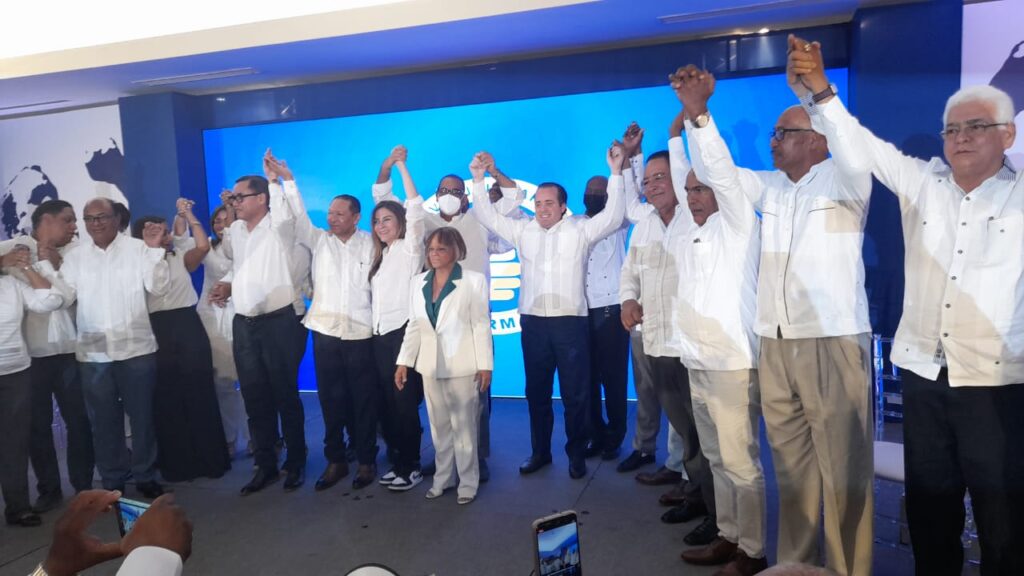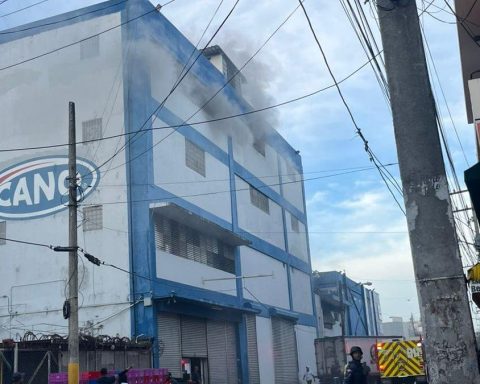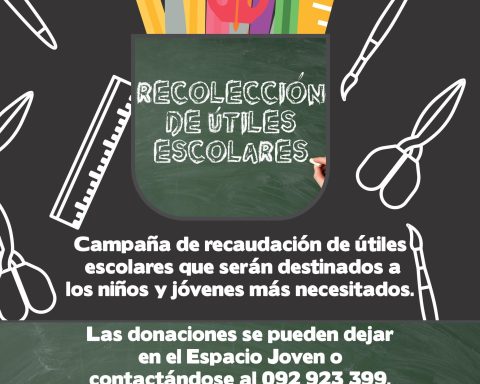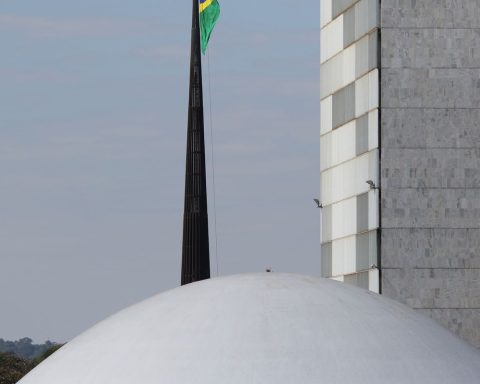Children and adolescents from various schools in western Caracas arouse their curiosity about technology, mechanics and electronics thanks to the itinerant educational robotics exhibitions and the induction classes held by the Andrés Bello Catholic University, with the purpose of providing basic notions that promote their vocation and foster interest in mechatronics
Photos: Moon Perdomo
The classic theoretical subjects of basic and diversified education in different primary schools in Antímano, Carapita, La Vega, Montalbán and Caricuao give way to extracurricular activities in induction to robotics carried out, since 2004, by the Andrés Bello Catholic University (UCAB) in popular sectors.
The objective is to provide young people with an early and timely approach to mechatronics, a science that unites different technological fields and mechanical, electrical and electronic engineering with which robotic machines capable of performing different tasks in an automated way are designed, developed and programmed.
An example of this are the drones, which are programmed through applications, the mechanical arms of the parking lots, which work with various sensors, among others.
«The demonstration activities are scheduled for children from fifth grade of basic education to young people of the diversified stage. They consist of three stations that explain three types of energy: clean and renewable, solar and wind, through which the students rotate; in addition to a video on the preservation and care of the planet and the environment”, comments Javier Herrera, adjunct research professor at UCAB.
It details that the inter-school workshops for the introduction to robotics are taught in four four-hour classes and work on introductory fundamentals to programming, the design of prototypes and the construction of automated models.
“Part of our objectives, in addition to showing the robotic models and guiding them towards their construction and programming, is for the boys to work as a team, develop computational and algorithmic thinking.”
The professor points out that, although the university offers the project to schools in the area, they are the ones who decide and coordinate the visit, according to the school schedule and time availability.
transmit knowledge
Behind the demonstration activities and the educational robotics workshops there is a team made up of students from different careers such as Social Communication, Education, Administration, Economics and the different engineering fields of the UCAB, who comply with the Community Service Law, teaching part of their knowledge to future generations through the Educational Innovation Center of the UCAB Social Extension Directorate.
UCAB has managed to maintain and perfect the project throughout its history, thanks to the collaboration of private technology and telecommunications companies (IBM and Telefónica Movistar) that provide materials and training for children.
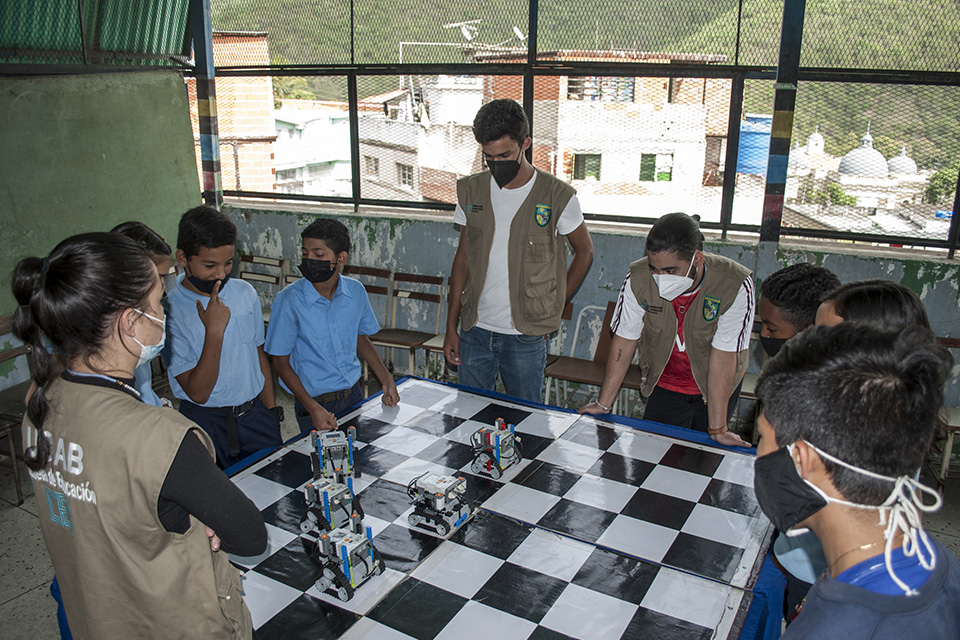
Although robotics is not part of the curriculum of basic and diversified education nor is it a National Training Program (PNF), classes and workshops in this branch of mechatronics have had a greater boom after the pandemic, both in schools and in private robotics classes and workshops.
Colleges and schools interested in receiving visits from the UCAB team for educational and demonstration activities must request them through emails[email protected], [email protected]
Roboty Foundation
«The idea of the Foundation comes from my husband, the electronics teacher Francisco Botifoll, and it is a purely family business, inspired by the creation of an educational methodology, in which the teacher offered demonstrative activities every day in the schools to call the attention of the young people who were going to start in the first year of high school and thus, they could choose the specialization of electronics, together with mechanics and electricity”, explains Miriam Sosa.
He details that, although the Foundation was officially born a decade ago, they have been promoting mechatronics for more than 20 years.
«Our classes consist of two academic hours and we teach them in our free time (Fridays and Saturdays), because we both have other jobs and our children study. Our work classroom is an integrated space, that is, for every six young people we have one with a disability».
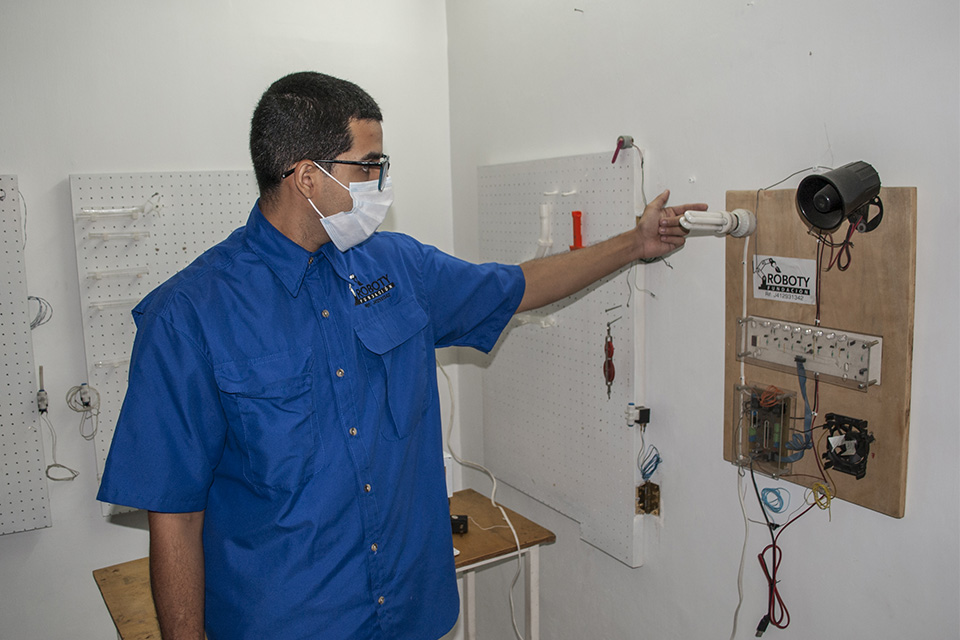
Currently, the creative robotics study group is made up of six young people, each with their computer and an electronic module. The minimum age required for those interested in the classes is from seven to 18 years of age, they have a cost of 3 dollars and $5 if it is face-to-face.
It should be noted that the Foundation does not have any type of financing, so all the resources they have are their own, mostly donated by relatives and others are recycled.
“In Venezuela, a curricular change is necessary, not only at the university level but also from preschool, so that children see mechatronics subjects and that, in the future, they can develop projects that the country needs, not only programmers but also developers for the industrial area” , highlights Miriam Sosa
anticovid cleaning station
The 4th year high school student Sergio Zambrano made his first invention thanks to a high school task in which he was asked to carry out a productive, technological or biosafety project. “Taking advantage of the fact that we are in a pandemic, I based myself on how to eliminate the covid-19 virus from reusable face masks, through heat,” explains the 15-year-old student.
After reading a study carried out in Texas (United States), which confirmed the neutralization of the virus through exposure to high temperatures (75°C), Sergio devised, designed and built the Anticovid Cleaning Station; a prototype that serves, above all, to show the idea.
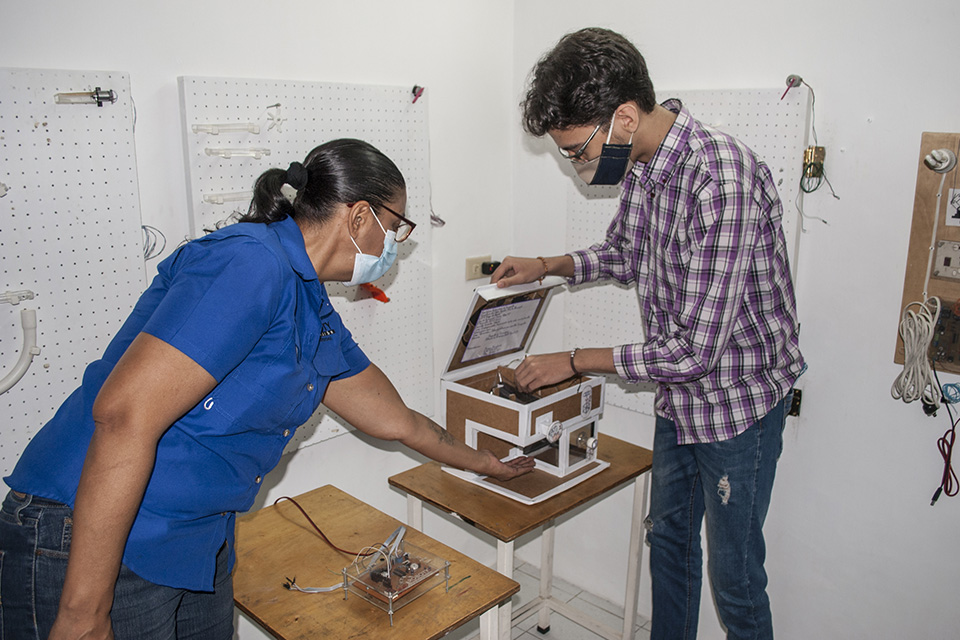
«The operation begins when the user presses a button, located on the front of the prototype, it releases antibacterial, the person opens the disinfection compartment and inserts the mask. On the one hand, there is a lever that activates the heat of the dryer for five seconds and it is disinfected”, explains the student, adding that the use of the equipment is mainly intended for commercial establishments, hospitals, stores, among others.
Miriam Sosa explains that Sergio’s project is in the prototype phase and details that “in order to become an enterprise, it must go through other phases.”
The student is trained to take the manual project to digitalization through the educational activities of the Foundation and the Universal Electronic Module (MUE), a kind of card or brain, created by Professor Francisco Botifoll, founder of Roboty, that provides the automated operation of this and other projects created in the Foundation.
«My teachers liked it a lot and recommended me for the Roboty course. I spent three months with the classes and I learned a lot about programming, the use of sensors, how to detect them and if I can improve the project, I can put sensors on it to automate people’s movement”, highlights Sergio.
Post Views:
438
